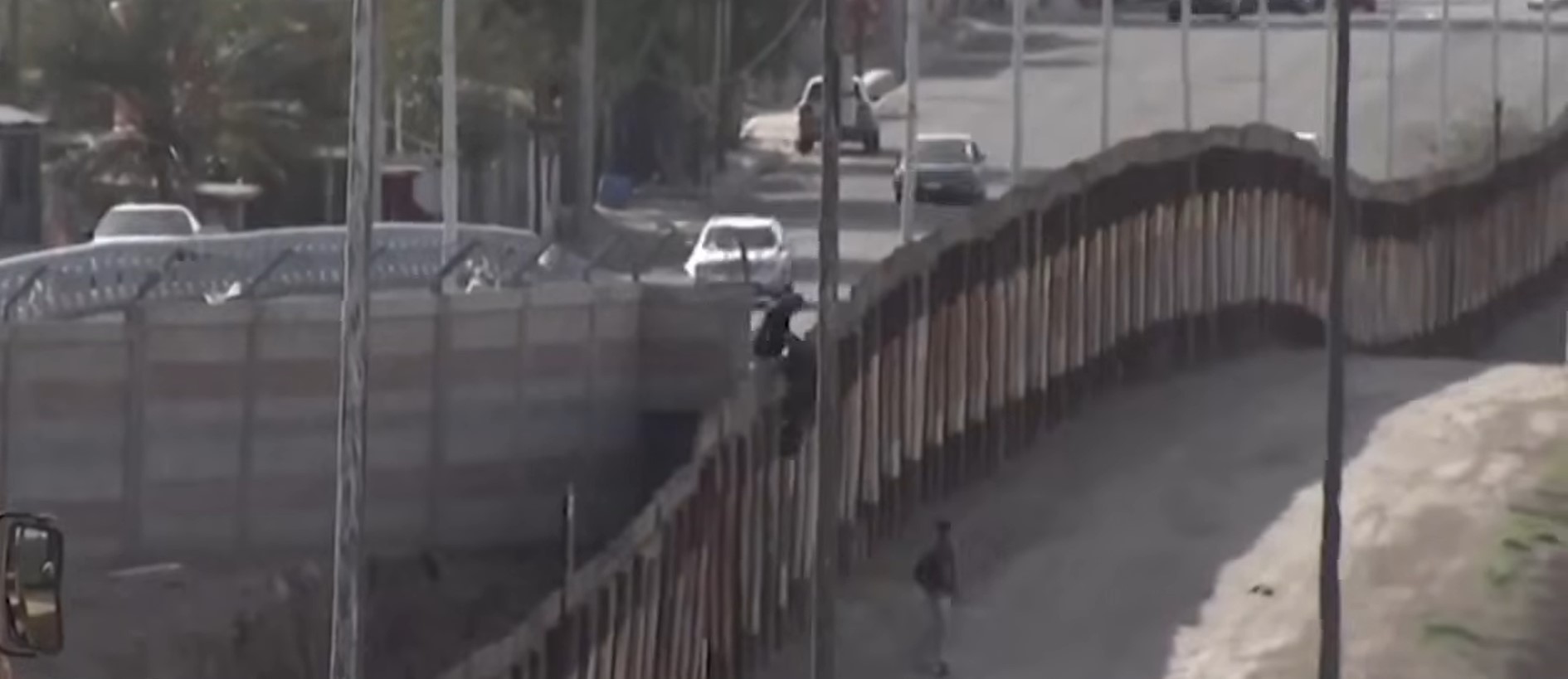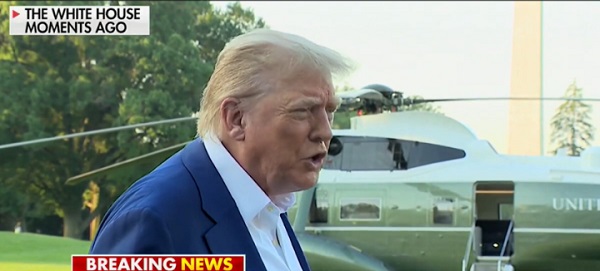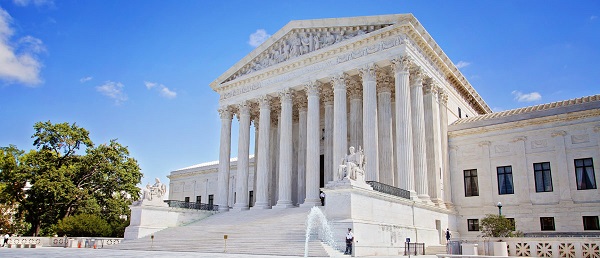Daily Caller
Notorious Routes For Smuggling And Illegal Immigration Suddenly Grow Silent With Trump’s Return


From the Daily Caller News Foundation
By Jason Hopkins
From the treacherous Panamanian jungle to the Texas-Mexico border, pipelines into the U.S. frequented by hundreds of thousands of migrants have suddenly gone quiet — just as President Donald Trump returns to office.
Immigration enforcement officials at both the U.S.-Mexico border and abroad are reporting incredible drops in illegal migrant encounters in just the past few weeks. This downward trend is largely being credited to Trump’s return to the White House and the initiatives he has put into place shoring up border security, leaving many would-be migrants to not even bother with an unlawful entry attempt.
The passage of illegal migrants through the Darien Gap, a jungle region in-between Panama and Colombia, dropped 94% in January compared to the same month last year, according to data released by Panama’s National Migration Service. A total of 34,839 illegal migrants crossed the Darien Gap in January 2024, with that number falling to just 2,158 last month when Trump returned to the White House.
“I would say that people are less inclined to go through the Darien when they know very well that they’re going to end up shipped back home,” Allan Baitel, a life-long Panamanian citizen, said to the Daily Caller News Foundation. “So the carrot has disappeared, and there’s no reason for them to head north.”
The Darien Gap — a vast jungle region stretching roughly 40 miles wide and 100 long between Panama and Colombia — was a paramount transit area for illegal migrants headed for the United States during the height of the border crisis under President Joe Biden. More than half a million migrants crossed the Darien Gap on their northward journey in 2023, which was also the highest year in history for unlawful migrant encounters at the U.S.-Mexico border.
Thick jungles and the presence of organized crime have historically made the Darien difficult to police. While a majority of those crossing the region have been Latin Americans such as Venezuelans and Ecuadorians, many African and Asian migrants have also utilized the routes to unlawfully make their way to the U.S.
The organized crime syndicates smuggling migrants across the Darien all the way to the U.S southern border have made billions in the process, with smugglers pulling in as much as $14 million per day.
Venezuelan nationals had made up the vast bulk of migrants trekking across the Darien, armed with the knowledge that the Venezuelan government was refusing to accept deportation flights from the U.S. However, the prospect of repatriation for these migrants became all the more real when the Trump administration successfully pushed Caracas into once-again accepting repatriated Venezuelans.
The drop in foot traffic out of the Darien coincided with a visit Secretary of State Marco Rubio made to Panama where he secured a major infrastructure deal with President Raul Mulino that ultimately reduces Chinese influence in the region.
Mulino was elected into office in 2024 on the promise to cut migration through his country. He has since entered into an agreement with the U.S. to help repatriate the illegal migrants caught by Panamanian authorities.
“He’s always been pro-U.S.,” Surse Pierpoint, a third-generation Panamanian, said to the DCNF about Mulino. “And the fact that Marco Rubio’s first trip down here was the administration staking a claim that ‘this is Monroe Doctrine 2.0 stay out of our neighborhood’ — Marco Rubio came to state it explicitly.”
Rubio was on the tarmac in Panama City Monday and observed a deportation flight of Colombian nationals who had been stopped by Panamanian law enforcement. Such repatriation flights, the State Department argued, acts as a major deterrence for other would-be illegal migrants.
The January drop in crossings at the Darien coincide with drops in illegal migrant encounters along the U.S.-Mexico border. Border Patrol Chief Mike Banks on Jan. 29 reported a 55% drop in migrant apprehensions from the prior week.
“This trend indicates that our enhanced border security measures produce results,” Banks said of the sharp decline. “With more boots on the ground, we’re making a substantial impact to the security of our borders.”
The Texas Department of Public Safety (DPS) is also confirming consistent drops in migrant encounters along the southern border, reporting a total of 446 illegal crossings on Monday. To put that number into perspective, there were over 12,600 unlawful border crossings in one single day in December 2023.
In Biden’s final full month in office, daily encounters at the U.S.-Mexico border averaged roughly 1,520 a day, according to Customs and Border Protection (CBP) data.
Once-major sectors for illegal migration have seen activity drop to near zero. Border Patrol agents reported roughly 1,800 daily average crossings in the El Paso Border Patrol sector December 2023. On Monday, that figure stood at just 98 encounters. Similar drops are being reported in the Rio Grande Valley, Big Bend and every other major sector along the U.S.-Mexico border.
“The State of Texas has experienced a decrease in illegal border crossings,” Chris Olivarez, a DPS spokesperson, said to the DCNF. “In January 2024, Texas decreased illegal border crossings by 85%.”
“This is in large part due to Governor Abbott’s Operation Lone Star border mission which involves the deployment of Texas National Guard Soldiers and DPS personnel committed to constructing infrastructure along the Texas / Mexico border and interior enforcement targeting criminal smugglers, transnational criminal gangs, and criminal illegal immigrants,” Olivarez continued. “The combination of Texas’ border mission and the federal government’s implementation of stricter immigration policies and interior enforcement at the federal level, the number of illegal border crossings decreased significantly to below 500 for the entire southwest border which includes Texas, Arizona, and California.”
Since re-entering office, Trump has implemented numerous reforms and initiatives aimed at bolstering border security and establishing an infrastructure to quickly detain and deport illegal migrants residing in the country. The administration has deployed troops to the border, deputized agents across numerous federal agencies with immigration enforcement authorities and secured a massive number of detention space outside of the country.
In addition to militarizing the U.S. side of the border, Trump successfully wielded the threat of tariffs to coerce Mexican President Claudia Sheinbaum into deploying 10,000 members of her own national guard to bolster border security efforts. A nearly similar victory was made at the northern border, where Canadian Prime Minister Justin Trudeau agreed to beef up border security to avoid sweeping tariffs on his country’s exports.
Under the auspices of the U.S.-Canada deal, Prime Minister Justin Trudeau’s government agreed to launch completely novel initiatives to tackle border security, such as the appointment of a fentanyl czar, the designation of cartels as terrorists, $200 million in spending on organized crime and drugs and around-the-clock monitoring of the U.S.-Canada border.
Trump’s election victory in November — making his promise to get tough on illegal immigration all the more real — resulted in many migrants choosing to turn around instead of bothering to show up at the southern border.
“The number of people arriving at the border is less, and I think Colombia, Venezuela, realize they have to reorganize themselves, and that there’s a new sheriff in town in the United States, and things are going to change,” Baitel said.
conflict
‘They Don’t Know What The F*ck They’re Doing’: Trump Unloads On Iran, Israel


From the Daily Caller News Foundation
President Donald Trump expressed frustration Tuesday after Iran broke a ceasefire, prompting retaliation from Israel during a gaggle with reporters on the White House lawn.
Trump announced the ceasefire Monday, saying it was supposed to take effect at 1 a.m. Eastern Daylight Time, but Iran fired missiles at Israel Tuesday. Trump vented, saying the countries had been “fighting so long” they couldn’t make peace.
WATCH:
“You know, when I say okay, now you have 12 hours, you don’t go out in the first hour just drop everything you have on them,” Trump said. “So I’m not happy with them. I’m not happy with Iran either. But I’m really unhappy if Israel is going out this morning because the one rocket that didn’t land, that was shot, perhaps by mistake, that didn’t land, I’m not happy about that.”
“We basically have two countries that have been fighting so long and so hard, that they don’t know what the fuck they are doing,” Trump added.
The United States struck facilities in Fordow, Natanz and Isfahan related to Iran’s effort to develop nuclear weapons early Sunday morning local time, using as many as 14 GBU-57 Massive Ordnance Penetrators in the operation, which involved a 37-hour flight by seven B-2A Spirit bombers.
The American strikes came ten days after Israel launched a military operation targeting the Iranian nuclear program. Iran has responded with repeated missile attacks on Israeli cities and a refusal to resume negotiations over its efforts to pursue nuclear weapons.
Automotive
Supreme Court Delivers Blow To California EV Mandates


From the Daily Caller News Foundation
“The Supreme Court put to rest any question about whether fuel manufacturers have a right to challenge unlawful electric vehicle mandates”
The Supreme Court sided Friday with oil companies seeking to challenge California’s electric vehicle regulations.
In a 7-2 ruling, the court allowed energy producers to continue their lawsuit challenging the Environmental Protection Agency’s decision to approve California regulations that require manufacturing more electric vehicles.
“The government generally may not target a business or industry through stringent and allegedly unlawful regulation, and then evade the resulting lawsuits by claiming that the targets of its regulation should be locked out of court as unaffected bystanders,” Justice Brett Kavanaugh wrote in the majority opinion. “In light of this Court’s precedents and the evidence before the Court of Appeals, the fuel producers established Article III standing to challenge EPA’s approval of the California regulations.”
Kavanaugh noted that “EPA has repeatedly altered its legal position on whether the Clean Air Act authorizes California regulations targeting greenhouse-gas emissions from new motor vehicles” between Presidential administrations.
“This case involves California’s 2012 request for EPA approval of new California regulations,” he wrote. “As relevant here, those regulations generally require automakers (i) to limit average greenhouse-gas emissions across their fleets of new motor vehicles sold in the State and (ii) to manufacture a certain percentage of electric vehicles as part of their vehicle fleets.”
The D.C. Circuit Court of Appeals previously rejected the challenge, finding the producers lacked standing to sue.
“The Supreme Court put to rest any question about whether fuel manufacturers have a right to challenge unlawful electric vehicle mandates,” American Fuel & Petrochemical Manufacturers (AFPM) President and CEO Chet Thompson said in a statement.
“California’s EV mandates are unlawful and bad for our country,” he said. “Congress did not give California special authority to regulate greenhouse gases, mandate electric vehicles or ban new gas car sales—all of which the state has attempted to do through its intentional misreading of statute.”
-

 Alberta11 hours ago
Alberta11 hours agoAlberta Independence Seekers Take First Step: Citizen Initiative Application Approved, Notice of Initiative Petition Issued
-

 Crime10 hours ago
Crime10 hours agoNational Health Care Fraud Takedown Results in 324 Defendants Charged in Connection with Over $14.6 Billion in Alleged Fraud
-

 Health9 hours ago
Health9 hours agoRFK Jr. Unloads Disturbing Vaccine Secrets on Tucker—And Surprises Everyone on Trump
-

 Bruce Dowbiggin12 hours ago
Bruce Dowbiggin12 hours agoThe Game That Let Canadians Forgive The Liberals — Again
-

 Alberta1 day ago
Alberta1 day agoCOVID mandates protester in Canada released on bail after over 2 years in jail
-

 Crime2 days ago
Crime2 days agoProject Sleeping Giant: Inside the Chinese Mercantile Machine Linking Beijing’s Underground Banks and the Sinaloa Cartel
-

 Business1 day ago
Business1 day agoCanada’s loyalty to globalism is bleeding our economy dry
-

 armed forces1 day ago
armed forces1 day agoCanada’s Military Can’t Be Fixed With Cash Alone






